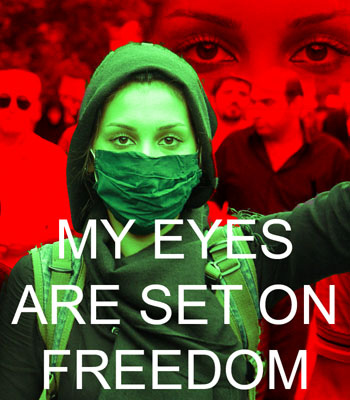Following each other closely, beginning with the 2 July 2017 meeting in Bamako, Mali of the G-5 Sahel (Mauritania, Mali, Chad, Burkina Faso, Niger) with the additional presence of Emmanuel Macron, President of France, followed by a meeting of the Ministers of the Interior of the 28-member European Union, followed by the G20 Heads of State in Hamburg, Germany, the challenge of the stabilization of socio-economic conditions in Africa to help halt the migration to Europe has been an important, if divisive, issue. In addition to refugees fleeing armed conflicts such as those in Syria, Iraq, Yemen, Afghanistan, Somalia, Mali, there is an increasing number of persons trying to reach Europe, now often through Libya. The breakdown of an organized government in Libya has facilitated groups of smugglers of humans offering their services, for money, to move people toward Italy. With the start of summer, the number of people trying to reach Europe has increased, as has the number of people who have drowned in the Mediterranean Sea.
People are fleeing war and armed conflicts as well as persistent poverty linked to high unemployment levels, sectarian-religious tensions, as well as a lack of opportunity for advancement. The motivation of each person trying to get to Europe can be different at the individual level, but the overall pattern of armed conflict, ethnic tensions and government failure to hold out hope for advancement create the basic framework. In addition, short-term drought in the Sahel as well as parts of East Africa add to the motivations to move. It is not clear if the current droughts are part of a regular cycle of “good and bad agricultural years” or if they are part of a larger pattern of climate change.
There is wide agreement among European governments that the best thing would be if current migrants stayed home with some efforts from Europe and North America to provide money for development projects. Few are asking why development aid from the early 1960s when the African States became independent has not done more in convincing people to stay at home to develop their lives there. Even fewer people are asking why the development programs of the 1950s, the last decade of colonial rule when some development programs on a large scale were undertaken did not accomplish more. Money and the transfer of skills was the heart of European and US projects for Africa in the 1960s and little has changed in the thinking today.
It is obvious that funds and skills are necessary for development, but if all that was necessary were money and skills, we would not be where we are today. At the core of a new development approach there needs to be “State-building” with institutions and policies which meet the basic needs of people. However, there is a wide-spread reluctance for European governments to engage in “State-building” after the relative failures of State-building by the USA in Afghanistan, Iraq, and Haiti as well as the more multilateral failure in Somalia.
The relevant political scale for dealing with and regulating migratory patterns has moved to a world level while implementation remains largely at the national or at best, regional level. Migratory flows have become more diverse, creating more complex and more varied routes. Likewise, meeting the basic needs of humanity is a world-level issue that needs to be undertaken by world-level institutions such as the United Nations.
Can the UN System be made more responsive to meeting the basic needs of all? Membership in the UN is regarded as advantageous for the legitimacy it confers on States and the right to participate in the full range of UN activities. The stabilization of migration will require that a policy of meeting basic needs be at the core of each government’s actions. Migration will continue, but it can be done in an orderly way that benefits both sending and receiving countries.
One of the most important and complex questions facing the world today is that of how development can be carried out in a way which can satisfy the most basic needs of all people in the shortest possible time. The June 1976 World Employment Conference Declaration of Principles and Programme of Action makes a major intellectual contribution to the resolution of this question with the world-wide acceptance of the Basic Needs Approach to Development with its emphasis on people as central to the development process[i].
There have been two fundamental texts proclaimed by the United Nations and its member Agencies. The first is the Universal Declaration of Human Rights proclaimed by the UN General Assembly in 1948 − “A common standard of achievement for all peoples and all nations.” The Universal Declaration stresses the rights of each person in the world, no matter what his State citizenship and no matter where he finds himself. The Universal Declaration set the stage for the development of Human Rights Law which develops the application of each Article of the Declaration.
The second fundamental text is the Declaration of the World Employment Conference called under the auspices of the International Labour Office in Geneva in 1976 which placed the family and the household at the core of the development process. Thus, the United Nations has underlined the importance of the individual and their rights and then the central role of the family and household as the basic unit around which to work for development.
Ideas have power in three ways:
By changing the ways issues are perceived;
By defining lines of action and agendas for policy;
By becoming set in institutions in ways which ensure implementation over the longer run.
Although the Basic Needs Approach builds on the development thinking in the United Nations and national governments of the 1950s and 1960s such as rural development, urban poverty alleviation, employment creation through small-scale industries, the Declaration of Principles begins by its awareness that “past development strategies in most developing countries have not led to the eradication of poverty and unemployment; that the historical features of the development processes in these countries have produced an employment structure characterized by a large proportion of the labour force in rural areas with high levels of underemployment and unemployment; that underemployment and poverty in rural and urban informal sectors and open unemployment, especially in urban areas, has reached such critical dimensions that major shifts in development strategies at both national and international levels are urgently needed in order to ensure full employment and an adequate income to every inhabitant of this One World in the shortest possible time.”
Thus the major shift in development strategies seen in the Basic Needs Approach is to focus on the family with the objective of providing the opportunities for the full physical, mental, and social development of the human personality. The Programme of Action defines a two-part approach. “First, Basic Needs includes certain minimum requirements of a family for private consumption: adequate food, shelter and clothing, as well as certain household equipment and furniture. Second, Basic Needs includes essential services provided by and for the community at large, such as safe drinking water, sanitation, public transport, health, education and cultural facilities.”The Programme adds a basic element to the actions: “A basic-needs-oriented policy implies the participation of the people in making the decisions which affect them through organizations of their own choice.”
The Basic Needs Approach concentrates on the nature of what is provided rather than on income − income having often been used as the criteria for drawing a “poverty line”. The Basic Needs Approach is concerned not only with the underemployed but also with the unemployable: the aged, the sick, the disabled, orphaned children and others. Such groups have often been neglected by the income and productivity approach to poverty alleviation and employment.
Much of the Basic Needs Approach has been incorporated into the UN’s yearly Human Development Report. But as is normal for an organization such as the United Nations where the representatives of States play the major role, the focus on the family has often given way to the focus on the State and its “Basic Needs”.
[i] See the Director General’s Report and the Declaration in International Labour Office.Employment, Growth and Basic Needs: A One World Problem (New York: Praeger Publishers, 1977, 224 PP.)
Rene Wadlow
President, Association of World Citizens.
Copyright mediaforfreedom.com


